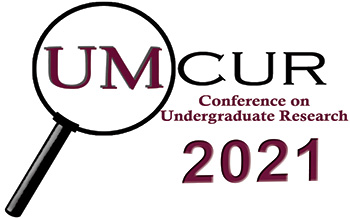Project Type
Presentation
Faculty Mentor’s Full Name
Robert Saldin
Faculty Mentor’s Department
Political Science
Abstract / Artist's Statement
America’s lackluster democratic tendencies are widely recognized as problematic. Through encouraging civic involvement from a young age, voter turnout and overall civic engagement can be bolstered. Drawing on public polling data, NGO reports, academic journals, and informant interviews including Montana and Oregon state legislators, this white paper advocates the societal benefits from lowering the voting age to sixteen in presidential, state, and local elections. Youth have the passion to enact positive change in the world they will inherit. Two recent examples are Greta Thunberg, the 15-year old phenom, who took her global campaign against climate change all the way to the United Nations; and the Parkland, Florida teens who led the nationwide #NeverAgain movement against gun violence after the Marjory Stoneman Douglas High School shooting. While further assessment is needed to more comprehensively determine the potential effects of extending voting rights to 16- and 17-year olds, research does exist, from this country and others, to suggest that potential negative consequences are minimal and that lowering the voting age improves voter participation and overall civic engagement. Similar to how Vietnam War protests sparked the movement to lower the voting age to eighteen, youth today face existential crises such as climate change in which their say in political matters is imperative. Through my research I explore whether extending voting rights to 16- and 17-year olds will fundamentally improve the political processes and dialogue in the United States.
Category
Social Sciences
Why We Should Lower The Voting Age to Sixteen
America’s lackluster democratic tendencies are widely recognized as problematic. Through encouraging civic involvement from a young age, voter turnout and overall civic engagement can be bolstered. Drawing on public polling data, NGO reports, academic journals, and informant interviews including Montana and Oregon state legislators, this white paper advocates the societal benefits from lowering the voting age to sixteen in presidential, state, and local elections. Youth have the passion to enact positive change in the world they will inherit. Two recent examples are Greta Thunberg, the 15-year old phenom, who took her global campaign against climate change all the way to the United Nations; and the Parkland, Florida teens who led the nationwide #NeverAgain movement against gun violence after the Marjory Stoneman Douglas High School shooting. While further assessment is needed to more comprehensively determine the potential effects of extending voting rights to 16- and 17-year olds, research does exist, from this country and others, to suggest that potential negative consequences are minimal and that lowering the voting age improves voter participation and overall civic engagement. Similar to how Vietnam War protests sparked the movement to lower the voting age to eighteen, youth today face existential crises such as climate change in which their say in political matters is imperative. Through my research I explore whether extending voting rights to 16- and 17-year olds will fundamentally improve the political processes and dialogue in the United States.
